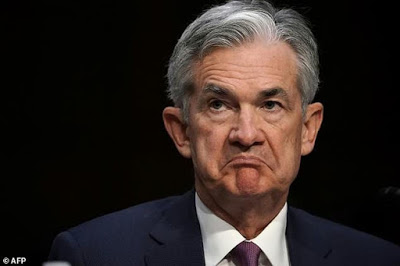by Greg Valliere, AGF Management Ltd.
IT’S BECOMING INCREASINGLY CLEAR that the Biden Administration doesn’t have enough support in Congress to pass another $4 trillion in spending — or impose major new tax hikes. The mood in Washington now focuses on scale-backs.
TOP BIDEN AIDES are reluctantly willing to consider a compromise (even though this will set off a fire-storm among the party’s progressives).
KEY REPUBLICANS WILL BE AT THE WHITE HOUSE for negotiations this week, which will confirm that Biden is willing to scale back his $2.3 trillion in infrastructure spending over eight years — if Republicans move off their low-ball plan to spend $568 billion.
WHAT’S CHANGED? TWO MAJOR NARRATIVES —
First, the economy is booming, with another strong unemployment report due on Friday. Most states are flush with money, thanks to the surging stock market; officials in California and other large states are debating what to do with their revenue windfall. Yet the White House mantra is that the economy desperately needs help — but that mantra is many months old, no longer valid.
Second, the Biden Administration simply doesn’t have the votes for massive new spending and tax hikes. With a 50-50 tie in the Senate, only one Democratic defector can scuttle the Biden agenda; Joe Manchin and other moderates will call the shots.
SO THE FOCUS WILL NOW SHIFT to a possible compromise. The most likely scenario would be to first pass an infrastructure bill — perhaps around $800 billion for highways, bridges, water pipelines, broadband, etc. Many Republicans would gladly accept this, even if the final price tag slightly exceeds $1 trillion.
THEN CONGRESS WOULD CONSIDER a bill to spend $1.8 trillion on child tax credits, education, etc. There’s no support for this among Republicans and only tepid support among moderate Democrats, which means Biden may have to settle for about $1 trillion or less. How would he pay for it?
WE REITERATE that major tax hikes are unlikely; modest tax increases are possible, with top individual rates rising a couple of points and the top corporate rate increasing by 3 or 4 points. The tax portion of this legislation is a mess, complicated by a huge potential roadblock over restoring the state and local tax deduction known as SALT.
WHAT THIS MEANS FOR THE MARKETS: The bond market, which had worried about a spending blowout, should be relieved to see the Biden agenda scaled back. The stock market, which worried about huge new tax increases, should be pleased to see provisions like corporate tax hikes scaled back.
BOTTOM LINE: We have written since passage of the $1.9 trillion covid aid bill that the rest of the Biden agenda will get a haircut, and there’s no reason to change that outlook. With shortages everywhere — from rental cars to semiconductor chips — the economy doesn’t need a massive new stimulus, and there are just enough Democrats in the Senate who agree.













